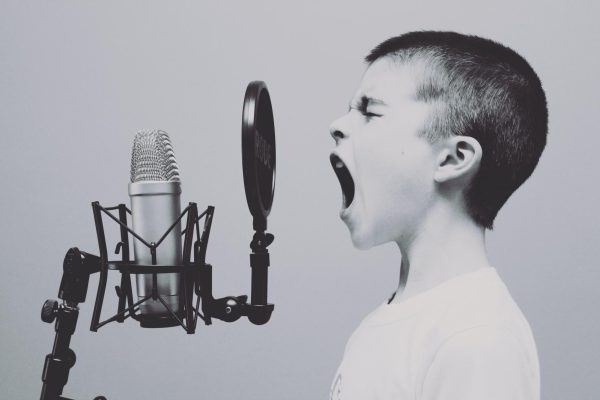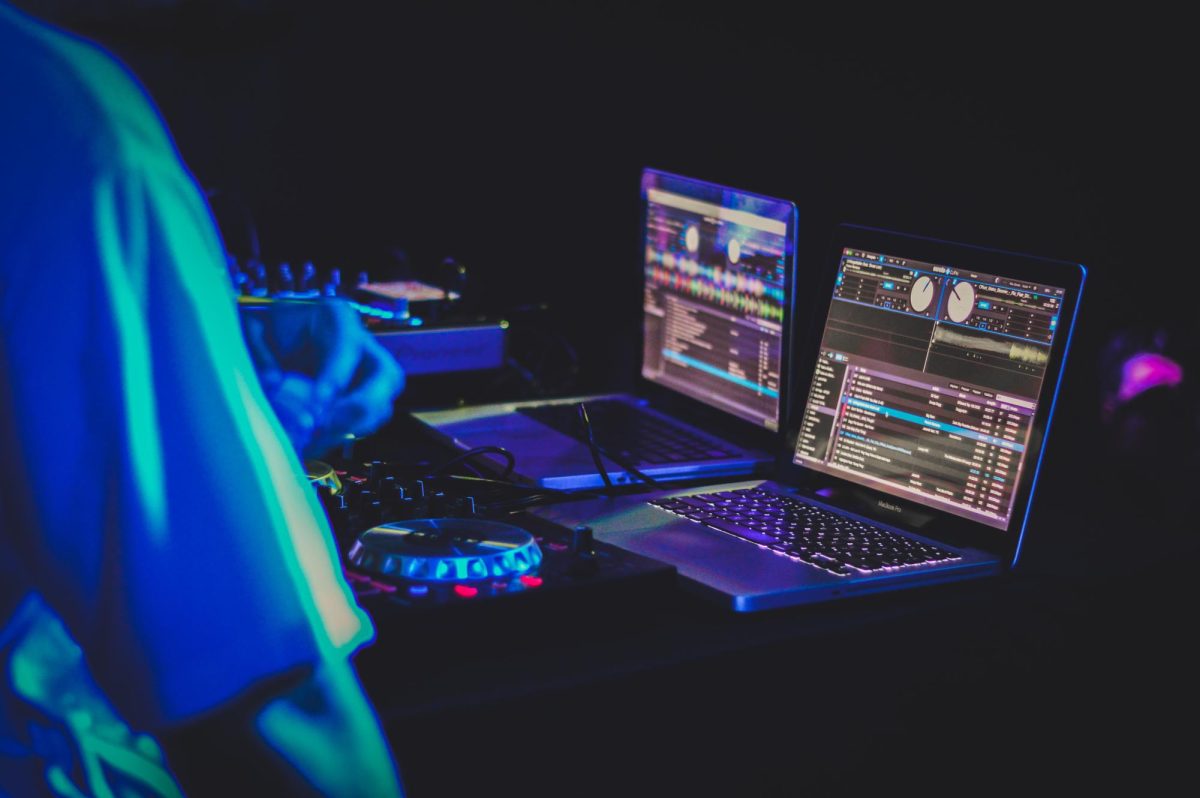Artificial Intelligence (AI) has been making waves in a multitude of industries, from revolutionizing healthcare to transforming the finance field – but what about its impact on the music industry?
Over the years, significant transformations have reshaped the music industry, altering the way we create, produce, and distribute music. Among these transformations, AI stands out as one of the most notable technological advancements to make its mark on the music industry. However, this collaboration isn’t a new phenomenon.
AI and music have a long history together, dating back to the 1950s when computer scientists began experimenting with generating melodies using algorithms. Since then, AI has evolved to become far more sophisticated and creative, capable of producing original compositions, remixing existing songs, and even collaborating with human artists.
Although AI holds the potential to revolutionize the music industry, it’s not without its challenges.
Artificial Intelligence: The New Genius of the Music Industry
In an era where technology is continuously advancing, Artificial Intelligence (AI) has proven its merit in the music industry. For producers and marketers, one of the key advantages of AI is its capacity to analyze and forecast patterns from massive amounts of data. Due to these capabilities, they can now release music that is more likely to appeal to their target audience. Take Spotify, for example. This music platform utilizes machine learning algorithms, creating personalized playlists for users based on an analysis of their listening patterns.
AI also offers its ability to swiftly and affordably compose fresh, creative music, enabling artists to use AI as a tool to produce pitches, rhythms, tone variations, and other musical elements. This is especially helpful for independent artists who might not have the funds to commission a full ensemble for their compositions.
For example, AI-driven music producers like Jukedeck, AIVA, and Amper Music can compose in a variety of musical genres, giving musicians inspiration or a starting track for their music.
AI can also improve music production by automating tedious tasks and freeing up musician’s time to concentrate on more creative aspects of the song-making process. Applications with AI-powered technology, for instance, may evaluate and fix pitch and timing inaccuracies in vocal recordings. This can save a lot of time and energy compared to manual editing.
Mr. Bing Qiu, the Assistant Principal of the Music Department at Bronx Science, said, “The AI revolution in the music industry is well underway. Technologies like AI mixing and mastering have been around for a while now, and the concept of AI-generated playlists hardly feels groundbreaking. I assume most artists have tried ChatGPT while working on their lyrics in 2023. At its core, the current AI technology serves as an additional tool. And with more tools comes more creative potential. Why would it be a bad thing?”
With AI as a collaborator, new ideas and directions can be sparked, opening up a world of possibilities for musicians and producers alike.
The Unpleasant Notes: Challenges and Disadvantages
Despite its potential, AI displays some drawbacks in the music industry. One of the major issues are the legal and moral ramifications of using artificially created music. Questions arise regarding who holds the copyright for music produced by AI and whether AI-generated music should be considered original or merely a remix based on existing tunes.
In the opinion of many, it depends on the users and their commitment to maintaining the originality of their work.
Moreover, some musicians contend that because the technology is so new, the music it generates may not always be favorable to what we want to hear. Simply put, the music isn’t very good. With AI it can still take hours to create a “good” song, at which point many would argue that the user might as well have utilized the time in making something themselves.
People who have created music or fans who enjoy listening to music will also assert that a computer could never emulate the creativity and personal touch of a real musician. “From an audience’s perspective, for something to be termed ‘music’, whether human or AI-generated, it must resonate with us on some level,” Mr. Qiu said.
Because many people view music as a precious way to express the human spirit at its core, it almost seems satirical to imagine a computer producing “random” music that wasn’t composed by an artist.
Despite these challenges, it is clear that AI will continue to play a significant role in the music industry, be it good or bad.

The Debate on AI-Generated Music
Will music be heard and loved the same with the incorporation of AI? I asked the students at Bronx Science, and their responses were quite negative.
Most students agreed that AI-generated tunes just didn’t hit the same as those crafted by human musicians. Jessie Lin ’25 said, “I don’t think AI could capture the heart and passion of a human.”
Similarly, Maggie Wan ’25 said, “Many people connect with an artist because they can relate or sympathize with them on some level. However, relating or sympathizing with an AI… is pretty much impossible.”
When asked if AI would impact the music industry positively or negatively, the responses varied. Marc Ye ’25 said, “While AI could potentially assist artists, it might also overshadow emerging talent in the industry.”
However, Jaman Mahamud ’24 had a different take, “We have already seen AI make daily tasks much more efficient, so why not in the music industry? AI can help human composers piece together music and experiment with new styles.”
The idea of AI replacing musicians was largely dismissed. Carlos Juan Martinez Jr ’24 said, “AI can never replace musicians because we connect with artists by interpreting their emotions through their songs – something a robot cannot replicate.”
Similarly, Emily Chen ’25 said, “While AI could possibly out-compete conventional artists given enough data and proper training, I doubt that the quality of the music would eclipse that of a human’s.”
So, will Bronx Science students listen to AI-generated music? For the most part, no. Amelia Lee ’25 said, “No, because to me it sounds completely fake.”
Not everyone was against it, some students seemed open to the idea. Leah Allen-Cheng ’25 said, “Yes, I would listen to AI-generated music. I think it’s interesting to see how AI does things similarly and differently when compared to human composers.” Tori Lu ’24 said, “Yes, I’d listen to it for the fun of it. I’m most interested in the human engineering and fine-tuning part of AI-generated music.”
AI’s involvement in the music industry has been developing for decades, and it shows no sign of stopping. There are many benefits and drawbacks for musicians and listeners alike, depending on their perspectives and preferences.
Some people appreciate the creativity, diversity, and accessibility that AI-generated music offers, while others value the emotion, passion, and authenticity that human-made music conveys. Some people see AI-generated music as a tool that can enhance or assist the music industry, while others see it as a threat that can undermine or replace it.
All things considered, AI-generated music should not replace human creativity or emotion rather it should complement it. Thus, it is crucial for artists and industry professionals to navigate these issues ethically, ensuring that the use of AI enhances rather than diminishes the art of music. As technology advances, we might see more collaboration between humans and machines in making music. The question is: are you ready for it?
With AI as a collaborator, new ideas and directions can be sparked, opening up a world of possibilities for musicians and producers alike.

